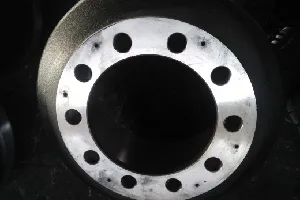
-
 Afrikaans
Afrikaans -
 Albanian
Albanian -
 Amharic
Amharic -
 Arabic
Arabic -
 Armenian
Armenian -
 Azerbaijani
Azerbaijani -
 Basque
Basque -
 Belarusian
Belarusian -
 Bengali
Bengali -
 Bosnian
Bosnian -
 Bulgarian
Bulgarian -
 Catalan
Catalan -
 Cebuano
Cebuano -
 Corsican
Corsican -
 Croatian
Croatian -
 Czech
Czech -
 Danish
Danish -
 Dutch
Dutch -
 English
English -
 Esperanto
Esperanto -
 Estonian
Estonian -
 Finnish
Finnish -
 French
French -
 Frisian
Frisian -
 Galician
Galician -
 Georgian
Georgian -
 German
German -
 Greek
Greek -
 Gujarati
Gujarati -
 Haitian Creole
Haitian Creole -
 hausa
hausa -
 hawaiian
hawaiian -
 Hebrew
Hebrew -
 Hindi
Hindi -
 Miao
Miao -
 Hungarian
Hungarian -
 Icelandic
Icelandic -
 igbo
igbo -
 Indonesian
Indonesian -
 irish
irish -
 Italian
Italian -
 Japanese
Japanese -
 Javanese
Javanese -
 Kannada
Kannada -
 kazakh
kazakh -
 Khmer
Khmer -
 Rwandese
Rwandese -
 Korean
Korean -
 Kurdish
Kurdish -
 Kyrgyz
Kyrgyz -
 Lao
Lao -
 Latin
Latin -
 Latvian
Latvian -
 Lithuanian
Lithuanian -
 Luxembourgish
Luxembourgish -
 Macedonian
Macedonian -
 Malgashi
Malgashi -
 Malay
Malay -
 Malayalam
Malayalam -
 Maltese
Maltese -
 Maori
Maori -
 Marathi
Marathi -
 Mongolian
Mongolian -
 Myanmar
Myanmar -
 Nepali
Nepali -
 Norwegian
Norwegian -
 Norwegian
Norwegian -
 Occitan
Occitan -
 Pashto
Pashto -
 Persian
Persian -
 Polish
Polish -
 Portuguese
Portuguese -
 Punjabi
Punjabi -
 Romanian
Romanian -
 Russian
Russian -
 Samoan
Samoan -
 Scottish Gaelic
Scottish Gaelic -
 Serbian
Serbian -
 Sesotho
Sesotho -
 Shona
Shona -
 Sindhi
Sindhi -
 Sinhala
Sinhala -
 Slovak
Slovak -
 Slovenian
Slovenian -
 Somali
Somali -
 Spanish
Spanish -
 Sundanese
Sundanese -
 Swahili
Swahili -
 Swedish
Swedish -
 Tagalog
Tagalog -
 Tajik
Tajik -
 Tamil
Tamil -
 Tatar
Tatar -
 Telugu
Telugu -
 Thai
Thai -
 Turkish
Turkish -
 Turkmen
Turkmen -
 Ukrainian
Ukrainian -
 Urdu
Urdu -
 Uighur
Uighur -
 Uzbek
Uzbek -
 Vietnamese
Vietnamese -
 Welsh
Welsh -
 Bantu
Bantu -
 Yiddish
Yiddish -
 Yoruba
Yoruba -
 Zulu
Zulu
Feb . 17, 2025 13:36
Back to list
drum brakes vs disk brakes
When choosing between drum brakes and disc brakes, understanding their functionality, advantages, and possible downsides is crucial for making an informed decision. Both brake types have been staples in the automotive industry, and each has unique attributes catering to different vehicle needs.
Choosing between drum brakes and disc brakes should be guided by the specific needs of the vehicle and the driving conditions it will face. For instance, a vehicle designed for high-speed performance, towing, or racing would benefit from the superior performance attributes of disc brakes. Conversely, vehicles operated predominantly in urban environments or that emphasize cost-saving without extensive performance demands might find drum brakes to be more than adequate. Both drum and disc brakes can perform effectively with proper maintenance and use, but each demands an understanding of their operational environment for optimal performance. Considerations such as vehicle type, driving style, cost implications, and typical weather and terrain are crucial. Industry trends show a gradual shift towards disc brakes in newer models due to advances in technology and demand for high-performance capabilities, yet drum brakes remain a viable option for many manufacturers looking to balance functionality with cost. Ultimately, the decision between drum and disc brakes should rest on a careful evaluation of service requirements and driving habits. Utilizing expert consultations and staying informed about the latest innovations in braking technology can aid consumers in making informed decisions, ensuring safety, reliability, and satisfaction with their vehicle’s braking system. In a world where automotive technology is rapidly evolving, staying informed about these vital components is key to ensuring optimal vehicle performance and safety.


Choosing between drum brakes and disc brakes should be guided by the specific needs of the vehicle and the driving conditions it will face. For instance, a vehicle designed for high-speed performance, towing, or racing would benefit from the superior performance attributes of disc brakes. Conversely, vehicles operated predominantly in urban environments or that emphasize cost-saving without extensive performance demands might find drum brakes to be more than adequate. Both drum and disc brakes can perform effectively with proper maintenance and use, but each demands an understanding of their operational environment for optimal performance. Considerations such as vehicle type, driving style, cost implications, and typical weather and terrain are crucial. Industry trends show a gradual shift towards disc brakes in newer models due to advances in technology and demand for high-performance capabilities, yet drum brakes remain a viable option for many manufacturers looking to balance functionality with cost. Ultimately, the decision between drum and disc brakes should rest on a careful evaluation of service requirements and driving habits. Utilizing expert consultations and staying informed about the latest innovations in braking technology can aid consumers in making informed decisions, ensuring safety, reliability, and satisfaction with their vehicle’s braking system. In a world where automotive technology is rapidly evolving, staying informed about these vital components is key to ensuring optimal vehicle performance and safety.
Prev:
Latest news
-
What Are Drum BrakesNewsJul.07,2025
-
Understanding Brake Drum MaterialNewsJul.07,2025
-
Semi-Trailer Brake Drum: A Key Component for Extreme Loads and Long-Distance TransportNewsJul.07,2025
-
Drum Brake Pads for SaleNewsJul.07,2025
-
Brake Drums for SaleNewsJul.07,2025
-
Brake Drum ManufacturerNewsJul.07,2025
-
Aluminum Brake Drums: The Future of High-Performance CarsNewsJul.07,2025
